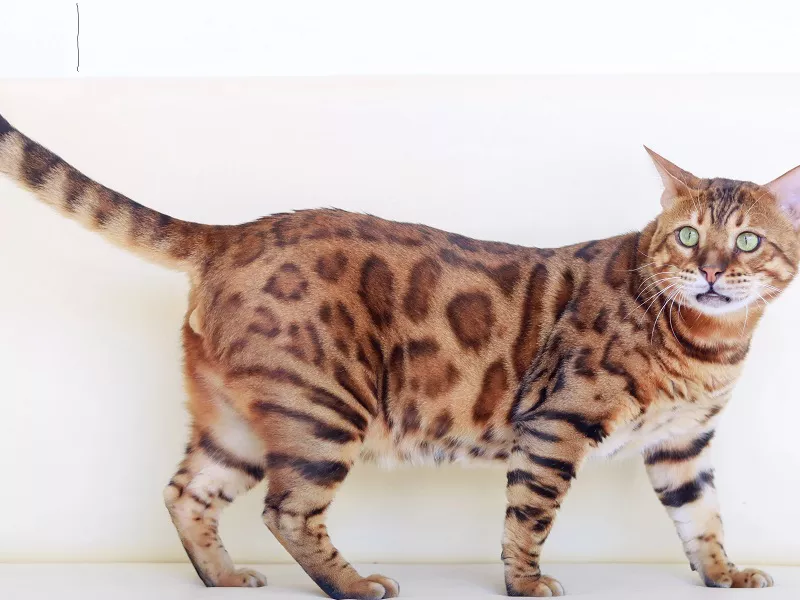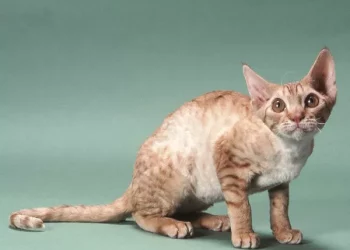Bengal cats, with their striking appearance and energetic nature, have gained popularity among cat enthusiasts worldwide. However, it might come as a surprise to learn that in certain regions, Bengal cats are deemed illegal or subject to specific regulations. The prohibition on owning these unique felines raises questions about the reasons behind such restrictions. In this article, we will delve into the complex factors that contribute to the illegality of Bengal cats in some places, exploring the concerns surrounding their hybrid origins, potential threats to native wildlife, and the controversy surrounding their ownership.
Understanding Bengal Cats
Before delving into the legality issues, it’s important to understand what makes Bengal cats so distinctive. Bengal cats are a hybrid breed created by crossing an Asian leopard cat with a domestic cat. They are known for their distinctive spotted or marbled coat patterns, muscular build, and active nature. Bengal cats retain some of the wild traits of their leopard cat ancestors, which contribute to their unique temperament and appearance. It’s this combination of wild and domestic traits that raises concerns among lawmakers and wildlife conservationists.
Hybrid Origins and Concerns
The hybrid origins of Bengal cats are one of the primary reasons for their illegality in certain jurisdictions. While some countries and states have stringent regulations governing hybrid breeds, others completely ban their ownership. Critics argue that breeding wild and domestic cats together blurs the line between domestication and endangerment, as it involves introducing wild genes into the domestic cat population. The unpredictable nature of these hybrids and concerns about their potential impact on native ecosystems are often cited as reasons for their prohibition.
Threat to Native Wildlife
Another key concern surrounding Bengal cats is the potential threat they pose to native wildlife. Due to their genetic heritage, Bengal cats retain some hunting instincts and agility that can make them formidable predators. In regions with delicate ecosystems and vulnerable wildlife populations, the introduction of a hybrid breed with such hunting abilities can disrupt the delicate balance and lead to the decline of native species. Lawmakers and conservationists argue that banning or restricting the ownership of Bengal cats is necessary to protect local fauna from potential harm.
Controversy and Regulation
The legality of Bengal cats sparks heated debates among cat enthusiasts, breeders, lawmakers, and animal welfare organizations. Advocates for Bengal cats argue that responsible ownership and proper containment can mitigate any potential risks associated with their hybrid origins. They believe that education and regulations, such as licensing and mandatory spaying/neutering, are more effective ways to ensure responsible ownership rather than an outright ban. However, opponents maintain that the risks outweigh the benefits and that the prohibition of Bengal cats is necessary to preserve the integrity of local ecosystems.
Alternatives and Responsible Ownership
For those living in regions where Bengal cats are illegal, it’s essential to explore alternative options and consider responsible pet ownership. Several domestic cat breeds bear resemblances to Bengal cats and offer similar characteristics without the hybrid lineage. By researching and consulting with reputable breeders, prospective cat owners can find breeds that match their preferences while adhering to local regulations. Additionally, supporting conservation efforts and engaging in responsible pet ownership practices, such as spaying/neutering and proper containment, can contribute to the overall welfare of both domestic cats and native wildlife.
Conclusion
The legality of Bengal cats remains a contentious issue, driven by concerns surrounding their hybrid origins and potential impact on native wildlife. The ban on these unique felines in certain places reflects the delicate balance between protecting ecosystems and preserving the rights of cat enthusiasts. While opinions may vary, it is crucial to respect and abide by local regulations to ensure the welfare of both domestic cats and the environment. By exploring alternative cat breeds and engaging in responsible ownership practices, cat lovers can still find joy and companionship without jeopardizing delicate ecosystems or breaking the law.
Recommended reading:

























